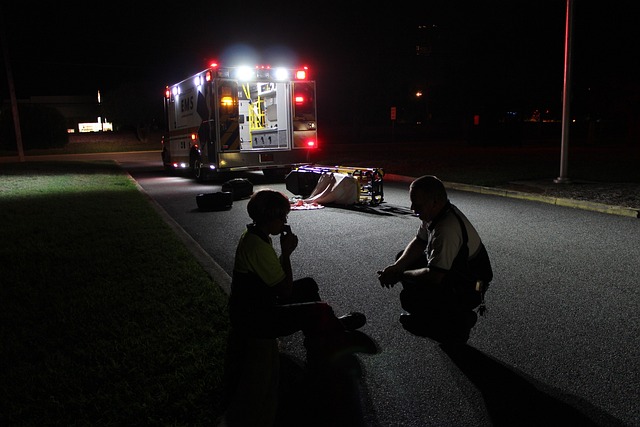Living Through Trauma
Living with Post-Traumatic Stress Disorder (PTSD) makes moving on from extremely stressful experiences difficult. It constantly reminds people of events that they strive to forget. Like other mental illnesses, PTSD takes a toll on the sanity of its victim and the emotional strength of the people around them. Ultimately, we should support those suffering from this illness to show that their problems are not theirs alone. PTSD is discussed in more detail on credible medical sites. You can learn more by exploring the resource below.
To be diagnosed with PTSD, an individual must experience these symptoms for at least one month. If you suspect that you may have PTSD, please visit your doctor to be properly diagnosed.
- Flashbacks
- Bad dreams
- Scary thoughts
- Avoiding places, events, or objects that remind them of trauma
- Avoiding thoughts of trauma
- Easily startled
- Difficulty sleeping
- Angry outbursts
- Trouble remembering details of the traumatic event
- Negative thoughts of oneself and/or of the world
- Feeling of guilt
- Loss of interest
The effects of PTSD can be much more severe in children than in adults. Traumatic experiences can affect a child’s development enough to hinder their personalities. Symptoms include:
- Forgetting how to or is unable to talk
- Acting out the traumatic event
- Unusually attached to adult figures
- Developed to become disrespectful and disruptive
Finding the root cause of PTSD is difficult due to the wide range of possible determinants. Additionally, there is much to learn about how PTSD and other mental illnesses affect the development of the brain — it is difficult to pinpoint exact causes. However, some risks are common among those suffering from PTSD, therefore should be avoided. Some of these risks are:
- Experiencing a serious event
- Loved ones and friends experiencing traumatic events

Little is known about how PTSD changes the brain. However, there are methods to reduce symptoms and find peace: medication and psychotherapy. Additionally, people with PTSD should be supported by other people — friends, family, or a support group.
Cognitive-behavioral therapy is a method to help individuals identify and reform their distorted beliefs and negative thought patterns. Ultimately, the goal is to promote a more positive and empowering mindset within the individual.
Exposure therapy is a type of CBT where one faces and controls one fears. Psychotherapy sessions help one revisit trauma through imagining, writing, or revisiting the place of the event. The goal of this method is to remove fear attached to places and things of the traumatic event.
Cognitive restructuring is another type of CBT where one tries to make sense of a bad memory. For instance, a psychotherapy session will help one remove guilt and to look at the event realistically.
The medication aids in reducing the stress of PTSD, but it is important to know that medication does not provide a “cure.” There are a few select medications that doctors prescribe, most are serotonin inhibitors.
Test Your Knowledge
Sources:
APA. “Medications for PTSD.” American Psychological Association, American Psychological Association, May 2017, www.apa.org/ptsd-guideline/treatments/medications.
The National Institute of Mental Health. “Post-Traumatic Stress Disorder.” National Institute of Mental Health, U.S. Department of Health and Human Services, May 2019, www.nimh.nih.gov/health/topics/post-traumatic-stress-disorder-ptsd/.
*This site content is provided for informational purposes only and does not intend to substitute professional medical advice, diagnosis, or treatment. If you have medical questions and/or concerns, please contact a medical professional.

